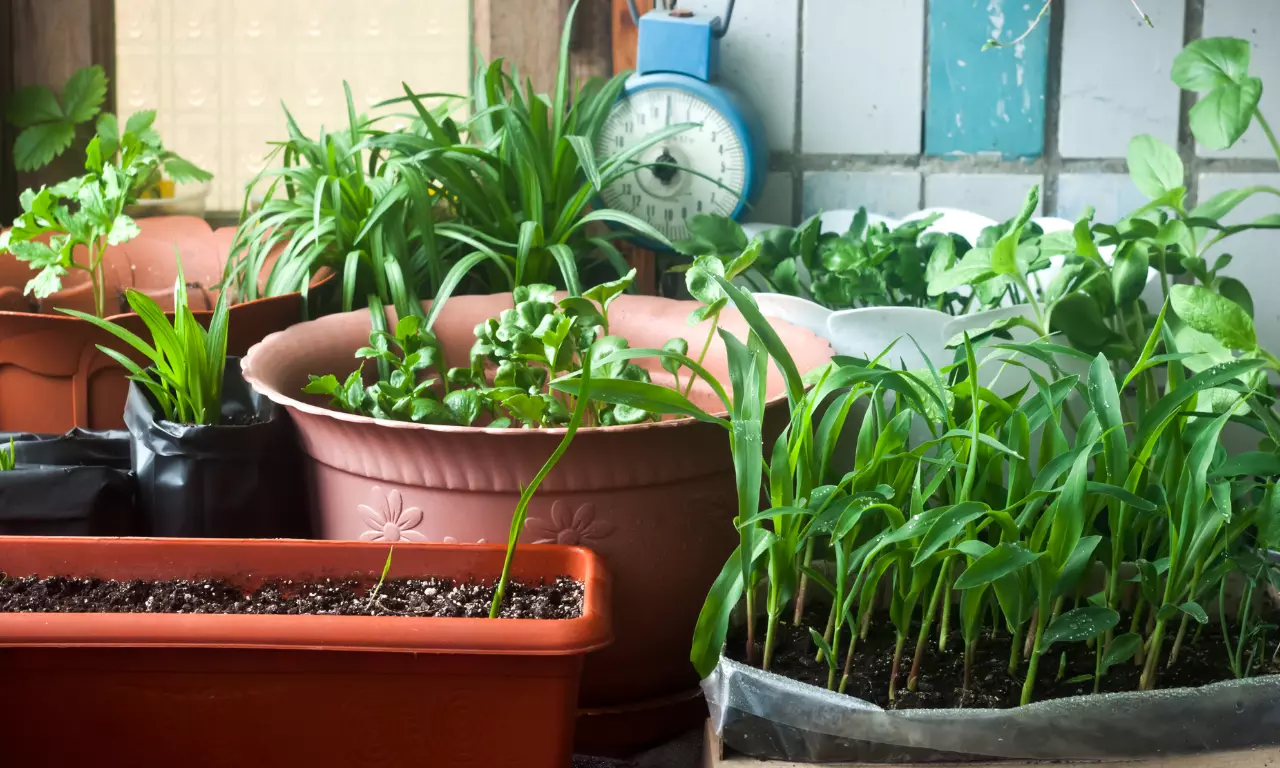10 kitchen gardening tips so you can eat your greens and grow them too
A beginner's guide to growing your own vegetables, fruits and microgreens in the kitchen
- By Manal DoshiLoading...
- | 5 Jun 2021 4:30 AM GMT
 X
X
While a part of our culture for many years, kitchen gardening has found a new resurgence in the post-pandemic world. The new normal has resulted in people taking gardening as a way to calm their nerves. Plus, you got your own herbs and veggies and who doesn't love that? As a hobby, it has found several takers, including Bollywood celebrities like Juhi Chawla, Shilpa Shetty and Twinkle Khanna and also international faces, like Oprah Winfrey.
If you're looking to cultivate a green thumb and add a lush touch to your home, take a cue from UK-based gardener Rekha Mistry who has been growing her own produce for 11 years. With a regular column in BBC Gardener's World Magazine and a diploma in horticulture, Mistry believes that the act is a natural stress reliever. Quiz her on the benefits of growing a kitchen garden and she says, "Cultivating your own kitchen garden will not only enable you to eat seasonal produce but also re-assert your connection with food. As they say, we are what we eat."
Here are ten expert tips on how can one go about setting up their own kitchen garden:
Grow what you like to eat
While it's easy to follow trends that you spot on Instagram, it's important that you invest your time and energy in growing vegetables, herbs and fruits that you will enjoy putting on your table.
Size doesn't matter
It's all in the planning. A little organisation can go a long way in turning even a small balcony into a lush green haven. What you grow might not be market-variety, but it can still produce a generous harvest.
Grow companion flower plants
Companion planting is the act of growing different species of plants in the same area for the purpose of them benefitting from each other. It will attract pollinators to your kitchen garden. Also, planting herbs within the space helps manage pests organically.
Be conscious of the sunlight when choosing plants
This is an important one and while we all studied this in sixth-grade science, it's easy to forget. Remember that some plants require a minimum of six hours of sunlight. So, choose wisely if you anticipate that to be an issue in your kitchen garden
Make your own organic plant feeds
Deep-rooted weeds contain a high level of nutrients within the leaves and stems. Chop and submerge them in a bucket of water for a minimum of six weeks. Strain and make plant feed out of it using a 1:10 ratio of weeds to water for sustained growth of the plants.
Learn to make your own compost
Learning to make your own compost using kitchen leftovers like residue tea leaves or eggshells, can help achieve a small but sustainable regime of putting back what was taken from the soil. And it's sustainable for the environment too.
Grow successionally
Sowing a few seeds in two-week intervals eliminates a glut of harvest at once and helps prolong the season too.
Grow vertically if space is an issue
Think vertically against the wall or even hanging baskets and pots. As long as you can provide a growth depth of a minimum of 15cm to 30cm, which is required for roots to anchor well, you can choose to seed plenty of vegetables that grow above ground.
Understand your soil
Clay soil although rich in nutrients will become compact and require aerating. On the other hand, sandy soil is free draining and nutrient-rich. Adding compost or manure will help open the soil and add body to help the plant root anchor and absorb nutrients.
Practice intercropping and catch cropping
Intercrop (two or more crops grown in proximity) the varieties that will not impede each other's growth and practise catch cropping (grown between successive plantings of the main crop) at the same time. For example, sow a row of onion seeds, followed closely by a row of lettuce seeds. The lettuce will germinate and harvest within weeks making it a catch crop while also leaving the space for the onion to grow freely.

Manal Doshi
Manal is a gregarious and ambitious girl who talks about bread incessantly. Her penchant for writing and aesthetics transcends into everything she does. She loves researching the culture and history of things. When she's not writing, you can find her working on a dozen unfinished projects, and consuming an unhealthy amount of art.



